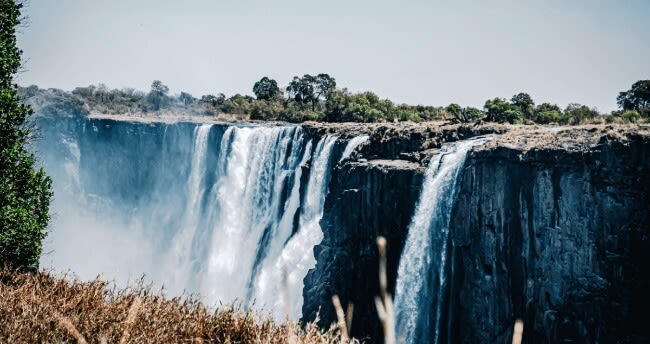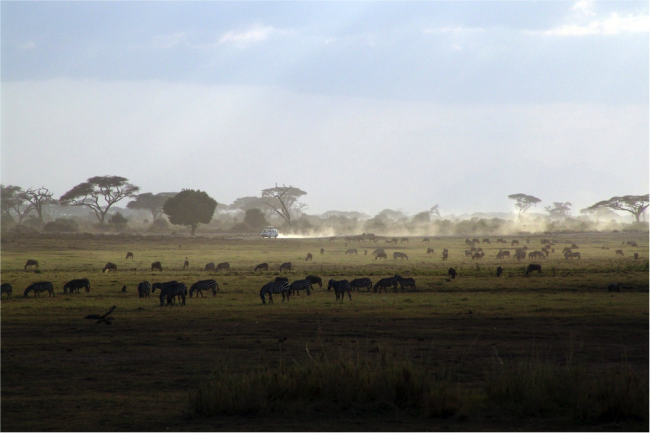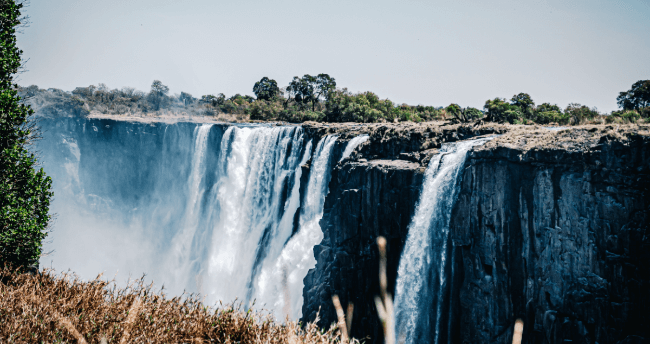
Zimbabwe
Welcome to Zimbabwe
Wondering if you need a visa for Zimbabwe? You've come to the right place. This blog will help you determine whether a visa is necessary for your trip to Zimbabwe and, if you need one, which best matches your travel plans.

What’s a Zimbabwe eVisa, and who’s it for?
Who’s the Zimbabwe eVisa for?
More than 50 countries, including Qatar, Taiwan, Colombia, Saudi Arabia, and more, must apply for a Zimbabwe eVisa before entering.
There are more than 100 countries, including the United Kingdom, Australia, China, Norway, and Japan, whose nationals don’t have to apply for a Zimbabwe eVisa before traveling and can get a visa on arrival.
Who’s not eligible for a Zimbabwe eVisa?
- Citizens from more than 40 countries, including Malaysia, Singapore, Tanzania, Seychelles, and more, are visa-exempt and don’t need to apply for a visa before entering Zimbabwe.
Can you travel visa-free, or do you need to apply for a Zimbabwe eVisa? Use the [Visa Checker Tool] (/) to find out.
What’s the purpose of the Zimbabwe eVisa?
-
For tourism and sightseeing.
-
To visit family and friends.
How long can you stay with a Zimbabwe eVisa?
This visa allows single or double entries and is valid for 90 days in total.
What’s a KAZA UniVisa, and who’s it for?
Who’s the KAZA UniVisa for?
The KAZA UniVisa is designed for tourists who wish to explore Zimbabwe and Zambia, offering them the convenience of a single visa to travel between these two countries.
It's available for nationals from various countries, including Australia, Canada, the United States, and many European nations.
This visa also allows for day trips to Botswana through the Kazungula Borders, making it an excellent option for travelers looking to experience the region's natural beauty and wildlife.
What’s the purpose of the KAZA UniVisa ?
Promoting tourism and easing movement between Zimbabwe, Zambia, and day trips to Botswana.
How long can you stay with a KAZA UniVisa?
The visa allows multiple entries and is valid for 30 days within 12 months, provided you remain within Zimbabwe and Zambia.
What’s a Zimbabwe Business Visa, and who’s it for?
Who’s the Zimbabwe Business Visa for?
Individuals who are traveling to Zimbabwe for business-related activities.
What’s the purpose of the Zimbabwe Business Visa?
To facilitate individuals who need to engage in business activities within the country. This includes consultations, offering services, attending meetings, or engaging in business travel trips.
How long can you stay with a Zimbabwe Business Visa?
A Zimbabwe Business Visa can be issued for single-entry, double-entry, or multiple entries, with a validity of up to six months. However, the maximum duration for each stay is limited to 30 days, and visas are not renewable in the country.
What’s a Zimbabwe Conferencing Visa, and who’s it for?
Who’s the Zimbabwe Conferencing Visa for?
This visa is for individuals attending a Zimbabwe conference, meeting, or seminar.
What’s the purpose of the Zimbabwe Conferencing Visa?
It allows individuals to enter Zimbabwe to attend conferences, meetings, or seminars. It facilitates the participation in such events within the country.
How long can you stay with a Zimbabwe Conferencing Visa?
The Conferencing Visa is valid for one month and is non-renewable.
What’s a Zimbabwe Transit Visa, and who’s it for?
Who’s the Zimbabwe Transit Visa for?
Travelers passing through Zimbabwe en route to another destination.
What’s the purpose of the Zimbabwe Transit Visa?
The purpose of the visa is to facilitate the passage of travelers who need to cross through Zimbabwe to reach another destination.
How long can you stay with a Zimbabwe Transit Visa?
The transit visa is typically non-renewable and is generally valid for the duration necessary to transit through the country.
What are the Zimbabwean long-term visa options, and who are they for?

Zimbabwe offers a variety of long-term visa options catering to different needs, including business activities, educational pursuits, employment opportunities, and more. Here's a brief look at the more popular options:
-
Study visa: Suitable for international students enrolling in Zimbabwean schools or educational institutions.
-
Residence permit: Aimed at individuals seeking to reside in Zimbabwe for extended periods.
-
Investor residence permit: For investors looking to engage in business and investment opportunities within Zimbabwe.
-
Business visitor permit: Designed for individuals visiting Zimbabwe for business-related activities over an extended stay.
It's important to note that we don’t handle long-term visa applications. For detailed information on each visa type, application procedures, and the most up-to-date requirements, it's recommended to visit the Government of Zimbabwe web portal.
Staying healthy in Zimbabwe: Here’s what you need to know
Ensuring you're in good health before your trip to Zimbabwe is vital to an enjoyable visit. Here's a general health guide that will benefit visitors to the country.
Make sure to stay updated on routine vaccines
It's essential to be current with your routine vaccines before traveling. This includes vaccinations for measles-mumps-rubella (MMR), diphtheria-tetanus-pertussis (DPT), varicella (chickenpox), polio, and your yearly flu shot.
The following vaccines are recommended for international visitors:
-
Hepatitis A: Advisable for infants 6 to 11 months old and any traveler over the age of 1 who hasn't received this vaccine and is traveling to Zimbabwe.
-
Hepatitis B: Recommended for all unvaccinated travelers planning to visit Zimbabwe.
-
Cholera: Recommended for those visiting regions in Zimbabwe where cholera outbreaks have occurred.
-
Malaria: Prescription medicine is recommended to travelers to prevent malaria. Depending on the medicine you take, you may need to start taking it days before your trip and during and after your journey.
-
Measles: MMR vaccine doses are recommended for infants aged 6 to 11 months before traveling.
-
Rabies: This vaccine is recommended for travelers involved in outdoor activities that might expose them to animal bites or those working with animals.
-
Polio: Adults who have been vaccinated should receive a booster dose, and those who have not should complete the vaccine series before their trip.
-
Typhoid: Especially recommended for visitors to rural areas, smaller towns, or those staying with locals.
-
Yellow fever: Recommended for travelers over nine months old and coming from countries with a risk of yellow fever virus transmission.
-
Stay informed about Zimbabwe's latest COVID-19 travel advisories, including any quarantine, testing, or vaccine documentation requirements. For up-to-date information, consult your airline or the nearest Zimbabwean embassy or consulate.
Medical facilities
-
Zimbabwe offers public and private medical facilities, with the quality of care generally higher in major cities such as Harare and Bulawayo.
-
In the countryside, healthcare facilities are more basic, and emergency services may be scarce.
-
Many international visitors often prefer private healthcare because of the broader selection of services and access to specialists. Make sure you have accessible funds or travel health insurance that is accepted in Zimbabwe.
-
You'll find pharmacies in cities and urban areas, stocking various over-the-counter drugs. However, if you need a particular prescription medication, it's better to bring it with you.
Health insurance
It’s essential to have travel health insurance for your entire trip.
Healthcare, especially in private facilities, can get expensive. Ensure your insurance covers significant health costs, including if you need to be evacuated for medical care.
Double-check with your insurance provider to confirm your policy covers:
-
Refunds for any travel mishaps, like cancellations or delays.
-
Costs for medical treatments and possible medical evacuation.
-
Compensation for lost baggage.
Things to be aware of when visiting Zimbabwe

To make your trip as smooth as possible, here are some guidelines to keep in mind.
-
Food and water safety: To minimize the chances of health issues, drink only bottled water and be cautious with raw or undercooked meals.
-
Follow local laws about photography: You’re not allowed to take photos of the President’s official residence, government buildings, and other sensitive places unless you have a special permit from the Zimbabwe Ministry of Information. When in doubt, don’t take a picture.
-
Stay safe during the rainy season: From November to April, Zimbabwe's rainy season can disrupt road travel and cause flooding, making some regions tricky to reach. Check the regional weather forecasts for the latest weather updates and follow the instructions of local authorities.
-
Safety during safaris: Keep a safe distance from wild animals during a safari and treat them with caution. Check with the Safari Operators Association of Zimbabwe to determine if your safari operator or tour guide is trained and licensed.
Medication for personal use
For those taking medication to Zimbabwe, here’s what you need to know:
-
Declare all medications: Make sure to declare any medications at customs, mainly if they are prescription or controlled substances.
-
Original packaging is a must: Always keep medications in their original packaging, clearly labeled with your name and the prescription information.
-
Carry a prescription or doctor's note: Bring a note from your doctor or a recent prescription detailing why you need the medication.
-
Check for restrictions: Double-check with the nearest embassy or Zimbabwe consulate to ensure no bans or restrictions on your medications.
-
Bring only what you need: To avoid any issues, only take the medication necessary for your trip.

 Australia ETA Online
Australia ETA Online
 United Kingdom ETA
United Kingdom ETA
 India Tourist eVisa
India Tourist eVisa
 Canada ETA Visa
Canada ETA Visa
 Turkey eVisa
Turkey eVisa
 Egypt eVisa
Egypt eVisa
 Singapore SG Arrival Card
Singapore SG Arrival Card
 Indonesia eVoa Visa
Indonesia eVoa Visa
 Aruba ED Card
Aruba ED Card


